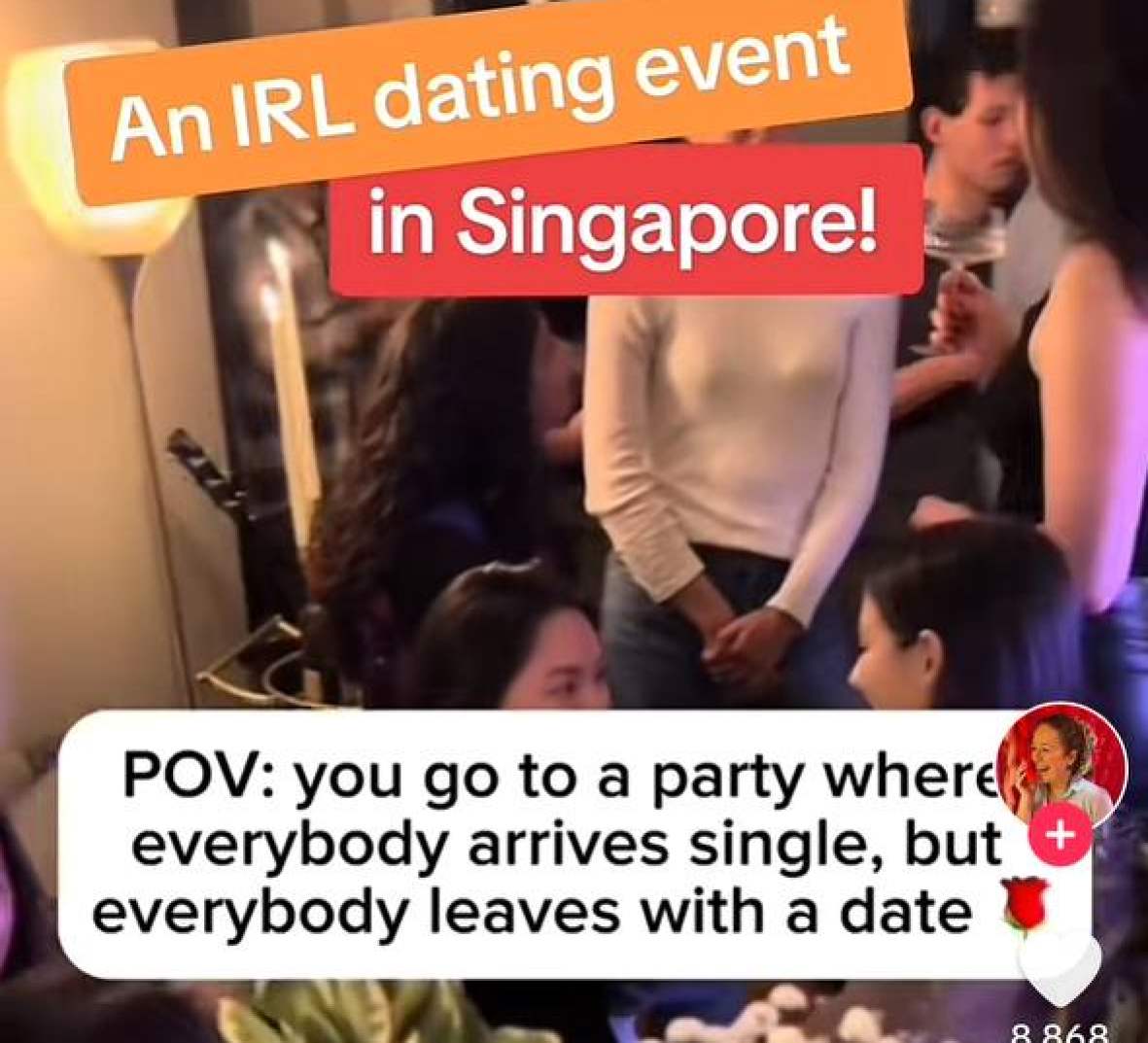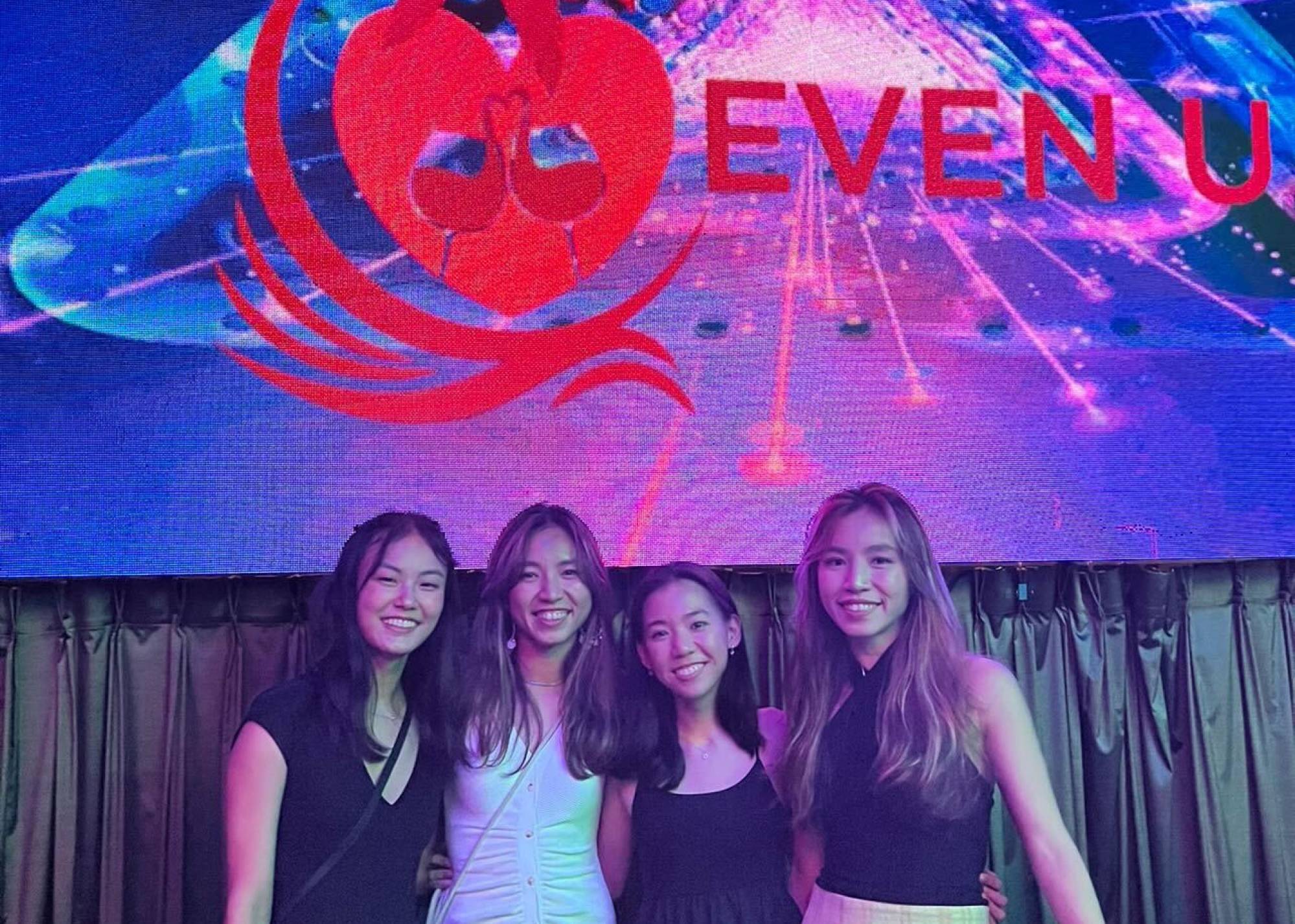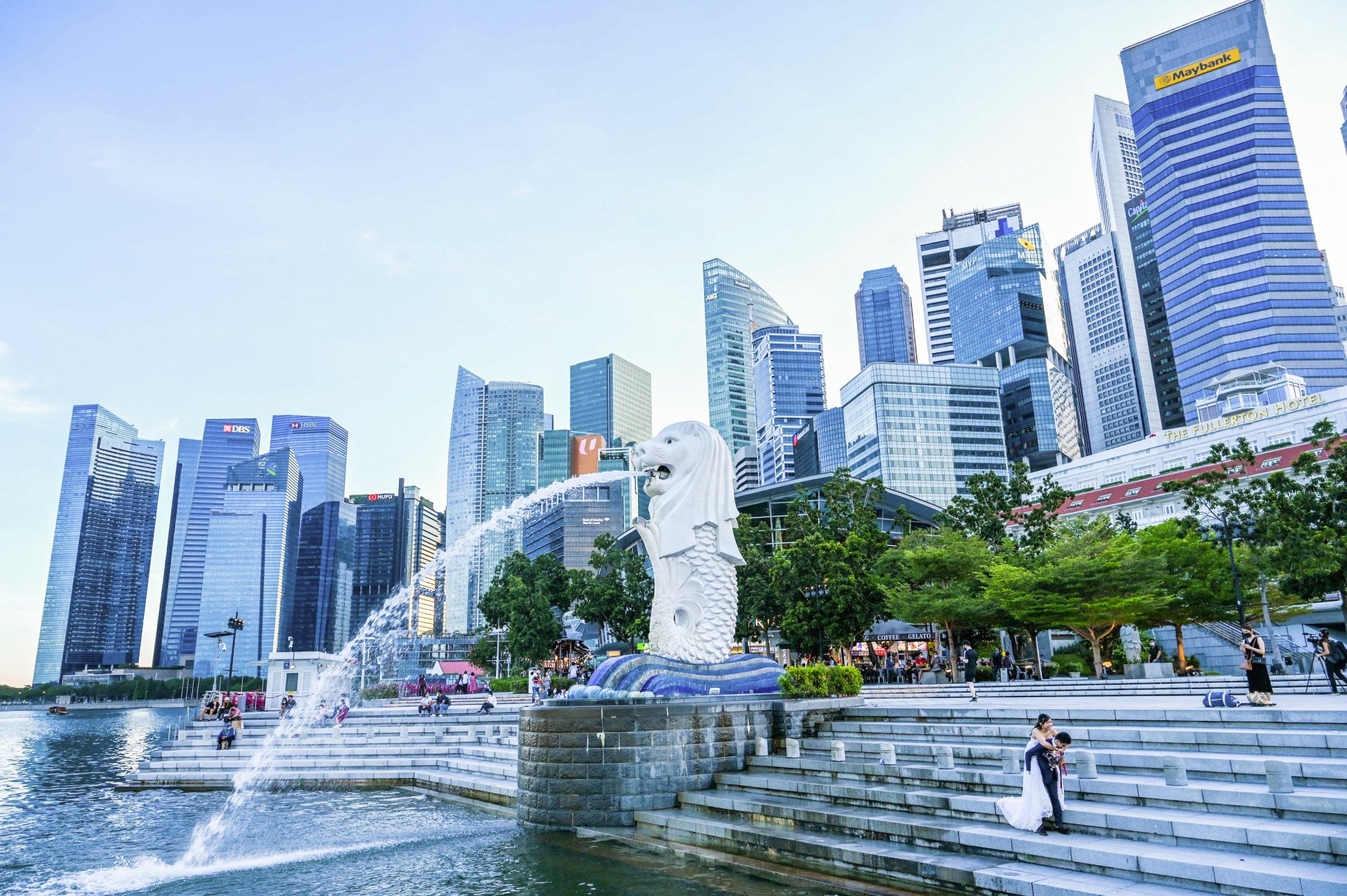“The [New York] event format was primarily offline or in person, but it had an element of technology incorporated into it. It immediately resonated as a fresh way to approach dating, so I contacted the original event organisers to licence the technology in Singapore,” Gallagher told This Week In Asia.
She is paying to licence the software from a US company called MatchBox, which has been posting on its TikTok account @matchboxparty about similar events hosted in New York since April.
SinglePore now has more than 2,500 people on its waiting list, and its first in-person event is set to take place next month. Gallagher described the event as “a small, heterosexual gathering” with a 50-50 male-to-female ratio.
“The goal is to create an intimate space that allows for attendees to have meaningful conversations and connections,” said Gallagher, a marketing professional in her mid-30s.
During the event, participants will fill a form of 25 questions and the algorithm will match singles up based on compatibility. The results will be shown live and participants can seek out who they are matched with and decide if they want to follow up beyond their initial contact.
Gallagher, who regularly posts about her dating life in Singapore, hopes to hold more events after the first edition of SinglePore.
She said: “I am seeing a growing appetite for in-person events, something I believe is being fed by our post Covid-19 era and a general fatigue for online dating. Whether for platonic or romantic reasons, people are looking for new ways to connect.”
SinglePore is the latest among a growing list of in-person dating events that organisers say have been gaining popularity in the city state in recent years, fuelled by frustrations with dating apps and a yearning for face-to-face connections in the post-pandemic era.
Comedy show Date My Friend, which involves participants recommending their friends as dating partners using a PowerPoint show, has held two sell-out events so far this year, each attracting about 50 attendees. Before the pandemic, the shows would typically see crowds of 30.

Attendees, who pay about S$20 (US$15) each, can fill in a form to indicate their interest in the friends or speakers at the end of the show.
“It’s a comedy show first, so there’s no pressure. You can buy a ticket, watch the show, and go home. The audience are lured in by the comedy premise, but you never know, you just might meet the right person,” said the founders, operations and marketing manager Liau Yun Qing and computer programmer Darren D, who declined to give his last name.
They sold out their June show within a week and will be running another show in July.
“We’ve definitely seen bigger audiences at our live comedy shows since the pandemic. It’s possible people are looking for more in-person activities over app experiences,” they said.
“We know personally of dates being set up through the show, but we haven’t received a wedding invite yet.”
Even Up founders Lachelle Khaw, Calista Ng, Sophie Tan and Sonia Tan said what started as an attempt to matchmake friends from different groups had taken off over the past year due to an overwhelming response.

“Even with the use of dating apps, which may be efficient and convenient, one might still feel the need to switch things up and be refreshed by a wholesome meet-up with people from the same walk of life.”
Another dating event organiser, iDatings, which has been running events including speed dating fortnightly since Valentine’s Day 2023, has seen more participants in recent months.
Founder Charlotte Yap said she started iDatings because it was “healthier” for single people to meet in person rather than via dating apps, where many people were often not truthful about their background or did not want to commit to relationships.
Tickets for her events typically cost S$30 for men and between S$8 and S$12 for women. Food and drinks are not included. Participants who are interested in other singles can let her do the matchmaking after each event.
A participant at an iDatings event, Siva Nathan, a 43-year-old lawyer, said that while he did not find a potential partner, he enjoyed his speed dating experience.
“It’s more like an informal kind of dating so you get to know them, you talk to them, and even if things don’t work out, you could work out as friends.
“Even though the objective was not met at that point in time, the conversation, sharing of ideas and food were good. It was a Saturday well spent,” he said, adding that most participants he had met through such events were singles like him who were interested in a long-term relationship.
Backlash against dating apps?
Norman Li, a psychology professor at the Singapore Management University, argued that the shift towards in-person dating events in Singapore might be caused by the backlash against dating apps.
“If people are increasingly interested in speed-dating events, that means that they are interested in having the chance to check out potential partners face to face. This also means that dating apps are turning out to be not all that useful for various people,” Li said.

However, Mathew Mathews, the head of the Social Lab and principal research fellow at the Institute of Policy Studies at the National University of Singapore, said the rise of in-person dating events might not necessarily mean a shift away from dating apps since these apps remained popular and were still an “acceptable way to connect with potential partners”.
Nonetheless, there are downsides to using dating apps such as users not being truthful about their intentions on their profiles, according to Mathews.
Mathews said: “You cannot also exclude the possibility that, just like other apps, the developers of online tech in the dating space have used their algorithms … to keep people addicted to their apps, and may be creating systems which do little to help people pivot to a fulfilling long-term relationship.”
“With work from home being commonplace now, there are fewer opportunities to meet potential romantic partners. Thus, people are looking for new ways to meet individuals who may be interested in developing a longer-term relationship,” Mathews said.
As a single, Gallagher said she was not averse to using online dating apps, but she would always prefer meeting a potential partner in person.
“I believe that connecting with someone for the first time in person will always outweigh an online introduction, whether it’s for platonic, professional, or romantic purposes. Those non-verbal signals such as body language and energy are often easier to discern and help to accelerate the connection,” she said.


